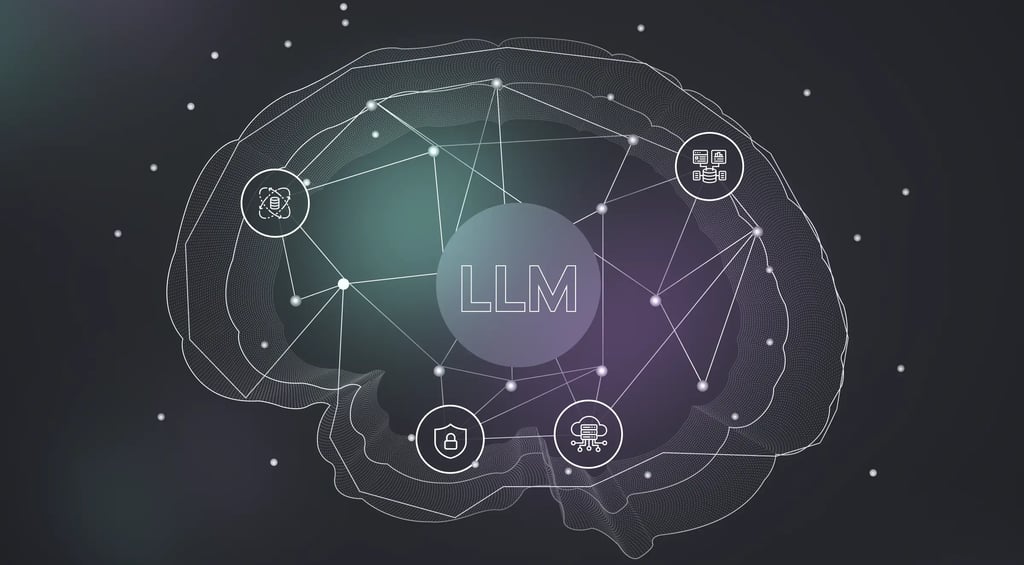Tired of 'Smart' Assistants Falling Short? So Are We. Building AI Agents That Actually Work (Notes from the Lab, 2025)
4/28/20255 min read


Hey everyone! We're back with another update from our experimental AI lab.
It's late 2025, and Artificial Intelligence is absolutely everywhere – splashed across headlines, embedded in ads, living in our phones. We're constantly promised revolutionary capabilities, incredible potential... But let's get real: how often does your actual experience using these "miracle" technologies live up to the hype?
Just the other day, my partner pitched an idea for a new website. Great concept, time to get cracking! I figured I'd take the easy route: dictate the ideas, use AI for transcription, then edit, and maybe translate to English or Spanish if needed. A familiar workflow for many, right? I used ChatGPT for the task, and generally, it worked. But the process itself served as a stark reminder of a deeper problem we're actively tackling.
Why "Big" AI Often Disappoints
Our lab is focused squarely on how AI can be applied in real life – for everyday people, for businesses, even for small teams. And one of the key hurdles we (and we're sure many of you) constantly run into is the unreliability and, frankly, the occasional "dumbness" of solutions coming from the major tech giants.
Here's a fresh example from my own experience: I was using a popular service for recording voice notes. I spent a solid ten minutes dictating important thoughts. Hit stop. And the service cheerfully responds: "Sorry, couldn't save that recording. Please repeat everything." Ten minutes! Needless to say, that paid subscription got cancelled immediately. Why pay for something that flakes out when you actually need it?
And this isn't an isolated incident. We see similar glitches and failures from the other "titans" – the ones we've almost come to worship, hoping they'll solve all our problems. But the reality is, they're still just machines with their own limitations, bugs, and moments of sheer illogical behavior. They can drop connections, throw bizarre errors, completely miss context. It's incredibly off-putting.
Our Path: Reliable, Specialized AI Agents
That's exactly why we decided to take a different path. Instead of relying on temperamental, one-size-fits-all models from the corporations, we started experimenting with our own, often private, language models. Sure, they might not match the sheer scale of Google's or OpenAI's latest offerings, but they win where it counts: reliability and the ability to handle specific tasks predictably and... well, maybe a bit more humanly.
Examples from Our Lab:
We're not just talking theory; we're building and testing. Here are a few areas where our AI agents are already showing promise:
The Smart Hotel Concierge That Actually Helps:
The Problem: Finding a hotel online is easy. But what about specific needs? Can I bring my dog? Do you have a wheelchair-accessible room? Are there any current discounts for people with disabilities? Usually, figuring this out requires phone calls or endless email chains.
Our Solution: We've built a system where one AI agent finds suitable hotels based on standard criteria, while another... automatically calls the selected hotels! Yes, it literally places calls and talks to the staff (or perhaps another AI on their end) to clarify all those nuanced details.
The Goal: Not just to find options, but to find the right option by confirming every detail, significantly speeding up the process for the user. We want the agent to not only gather information but also, for instance, book a room under your name, confirm the price and payment terms, and send you a reminder. Imagine saying, "Find me a hotel on Highland Lake X for next weekend, confirm they allow Labradors, and if the price is under Y, book it," and having the system handle everything.
Navigation That Doesn't Make You Crazy (and is Safe!):
The Problem: Who hasn't lost their cool with navigation systems? They often force you to take your eyes off the road to tap a button, type something, or recite a command exactly right. At highway speeds, this is downright dangerous! It feels like major manufacturers have somehow overlooked basic safety.
Our Vision: A voice assistant that understands you naturally and acts.
Case 1: Driving to Grandma's, remember you need meds. You say: "Without taking my hands off the wheel, find the nearest pharmacy that has [Medication Name] in stock and reroute me." The system should find it, ideally check inventory via API, offer options, or just change the route.
Case 2: Driving to work. A call comes in: "Urgent! You need to swing by Client Z's office to pick up documents!" You tell the navigator: "Urgent route change, need to go to Client Z." But you don't recall the address! The system should ideally find the address itself (if integrated with your CRM or contacts) or offer to quickly connect you with the office (to ask "Aunt Mary or Elsa the secretary") to clarify, and then update the route.
The Goal: Truly natural voice interaction, no screen-poking needed, with contextual understanding and the ability to execute multi-step tasks.
Customer Support That Actually Supports:
The Problem: First-generation auto-attendants and chatbots are often more irritating than helpful. Pressing "1," then "2," then "3" feels like a relic from the past.
Our Solution: An intelligent agent for customer support (via text and voice) that engages in a real dialogue. It can explain product features, clarify payment details, assist with usage, and answer complex questions—getting as close as possible to a conversation with a knowledgeable human.
Specific Use Case: Our company resells virtual phone numbers from various countries, including older Tolfri numbers. Clients often ask for IVR integration. Instead of the standard "press 3," we offer an "interactive artificial respondent." It doesn't force the customer through button-mashing hell; it has a conversation to understand their needs and either directs them or resolves the issue itself. This is especially relevant when integrating with contact centers, say, in Pakistan – an intelligent AI agent can screen calls before they hit a human operator, reducing workload and improving the customer experience.
A Trap for Scammers & Conversation Analytics:
The Problem: Phone fraud is a massive scourge. So are inefficient sales calls and missed opportunities.
Our Solution: An AI system that analyzes conversations (recorded or in real-time). Based on speech patterns, keywords, pauses, intonation, and other parameters, it identifies suspicious calls—potential scammers—with a calculated probability.
The Upside: This same technology can be used for positive analysis: predicting if someone is likely to become a buyer ("sounds like he's ready to buy those boots"), identifying a high-value client, or detecting unspoken needs ("He's long overdue for a vacation," "Sounds like she's thinking about buying a car").
The Goal: Enhance security and communication effectiveness through deep dialogue analysis.
Our Philosophy: Freedom from 'Digital Serfdom'
We get genuinely frustrated when big companies promise innovation and seamless integration with real-world devices, only to deliver empty hype or severely restrict what their platforms can do. The regulations and censorship imposed by these corporations often stifle the technology's true potential.
Our project is also driven by a desire to give users freedom. Freedom of choice, freedom to create solutions without bowing to the dictates of monopolies, freedom from imposed "digital serfdom." We want to build systems that aren't dependent on the whims of large vendors.
Who Are 'We'?
Right now, our team is a duo:
One is a serial entrepreneur (the business-building kind, not the scary kind!) with experience creating and growing ventures.
The other is an AI enthusiast and a deep practitioner. One of those folks who started implementing these technologies early in their practical evolution and who, I believe, is now on the right track, creating genuinely useful things.
That's us – a small but highly motivated company.
What's Next?
We're constantly experimenting, gathering feedback, refining our algorithms, and building services we can be proud of. Right now, I'm taking a quick breather, but all the ideas and progress are saved, and the work will continue very soon.
We believe the future belongs to smart, reliable, human-centric AI solutions that solve real problems, not just generate hype. Stay tuned for more updates from the lab!


Lemur LAB
© 2025. All rights reserved
Partner with our AI research lab
Join us at the frontier of machine intelligence. Share your idea or challenge in the form, and we’ll reach out to co-create pioneering research, rapid prototypes, and real-world solutions—together.
